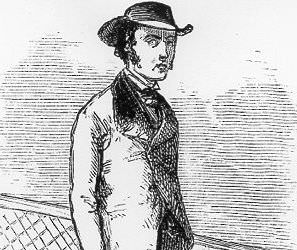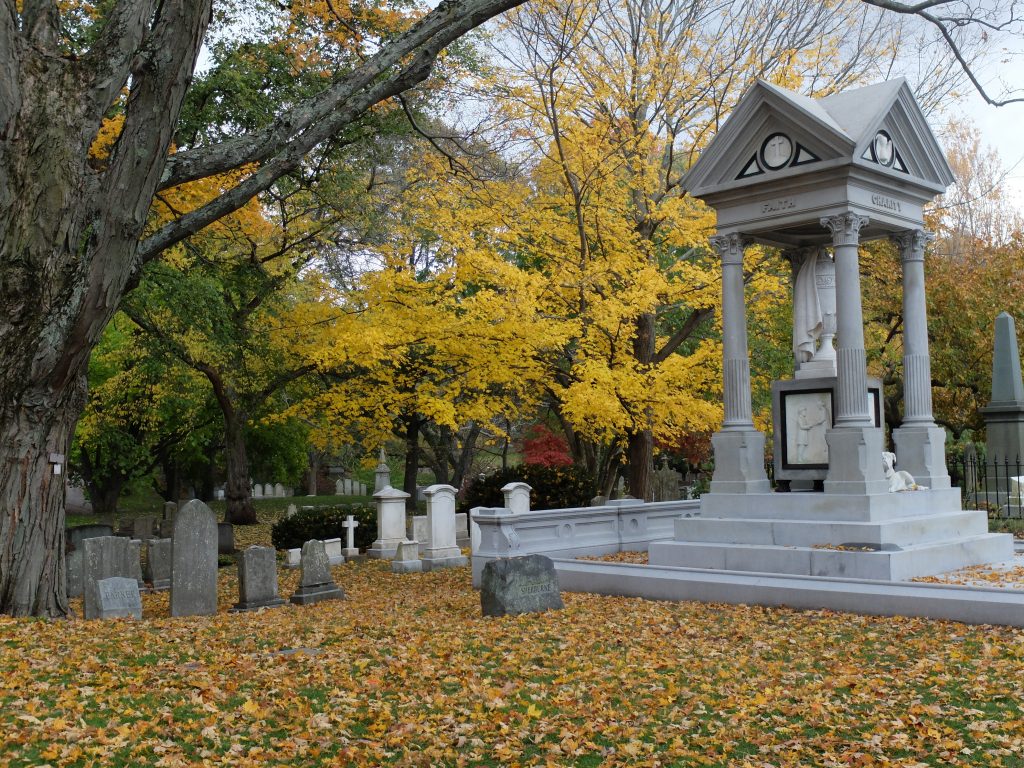William F. Harnden (1812 – 1845)

Born in Reading, MA, on August 23, 1812, William F. Harnden was a pioneer in the express industry.
Harnden worked for the Boston/Worcester railroad as a conductor and passenger-clerk for the first train that ever ran over its tracks. He delivered packages as favors to friends and passengers, carrying them on his person while he made his transit. In the mid-1830s he moved to New York City, where he visited the Tontine Coffeehouse, a Wall Street gathering place frequented by merchants. It was there he met James W. Hale, who asked Harnden if he knew anyone who transported packages. This exchange inspired the creation of Harnden’s express delivery system.
With Hale’s support, Harnden began delivering packages in a carpetbag that he carried by hand. The first person to carry express post on a train, Harnden quickly traded in his carpetbag for chests and trunks. As his delivery network grew, he began receiving free passage on boats and trains, easing some of the financial strain of the business. In 1839, Harnden was able to hire several employees, including his younger brother, Adolphus, who tragically died the following year in the burning of the steamship Lexington. Dexter Brigham, Jr. was hired and quickly became partner; it was he who continued the business following Harnden’s death.
The establishment of the Liverpool-to-Boston Cunard steamship line opened up a delivery route from Boston to New York and Philadelphia in 1840, and allowed Harnden to establish offices in Philadelphia and Albany the following year. Harnden actively resisted expanding his business westward, choosing instead to expand overseas and establish offices in Liverpool, London, and Paris. Though Harnden did not want to carry post to the western half of America, he did think that importing an inexpensive labor supply from Europe would be most efficient way to grow his business while aiding in the construction of the American frontier. Setting up branches in Scotland, France, Germany, and Ireland, Harnden opened his “English and Continental Express” in 1841, effectively creating the first organized system of emigration and bringing an estimated 100,000 laborers to the United States.
Though Harnden established the express mail system and held a monopoly on bringing these laborers to America, he always charged reasonable rates and compensated his employees fairly, despite the financial shortcomings of either endeavor. His dedication to his work was to the detriment of his health, and his singular focus on European expansion of his business resulted in the increased domestic success of his competitor, Alvin Adams (Lot #1488 Pine Avenue), owner of Adams Express.
In January 1845, Harnden died of consumption (tuberculosis) and was buried next to his 10-month-old daughter, Sarah, who had died three years prior. In 1866, the Express Companies of America erected a monument in Harnden’s memory to replace his original marker.
In 2016, the monument for Harnden was professionally conserved with assistance from our Cemetery preservation department, and funded by contributed support. The monument is one of our grandest and most ornate, and the complex conservation project involved careful treatment of bronze, marble and granite elements.
Harnden is buried in Lot 886 on Central Avenue.
Adapted from the research of Judy Jackson and Laura M. Gosman, as published in Mount Auburn’s Person of the Week: William Harnden, 2001.

Leave a Reply